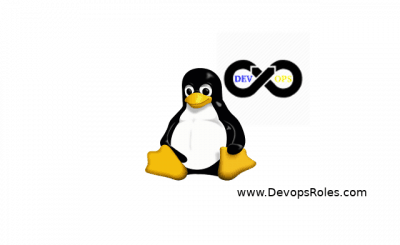Table of Contents
Introduction
Oracle Customer Relationship Management (CRM) is widely used by businesses seeking robust tools for managing customer interactions, analyzing data, and enhancing customer satisfaction. Running Oracle CRM in Docker not only simplifies deployment but also enables consistent environments across development, testing, and production.
This deep guide covers the essential steps to set up Oracle CRM in Docker, from basic setup to advanced configurations and performance optimizations. It is structured for developers and IT professionals, providing both beginner-friendly instructions and expert tips to maximize Docker’s capabilities for Oracle CRM.
Why Run Oracle CRM in Docker?
Using Docker for Oracle CRM has several unique advantages:
- Consistency Across Environments: Docker provides a consistent runtime environment, reducing discrepancies across different stages (development, testing, production).
- Simplified Deployment: Docker enables easier deployments by encapsulating dependencies and configurations in containers.
- Scalability: Docker Compose and Kubernetes make it easy to scale your Oracle CRM services horizontally to handle traffic surges.
Key Requirements
- Oracle CRM License: A valid Oracle CRM license is required.
- Docker Installed: Docker Desktop for Windows/macOS or Docker CLI for Linux.
- Basic Docker Knowledge: Familiarity with Docker commands and concepts.
For Docker installation instructions, see Docker’s official documentation.
Setting Up Your Environment
Step 1: Install Docker
Follow the installation instructions based on your operating system. Once Docker is installed, verify by running:
docker --versionStep 2: Create a Docker Network
Creating a custom network allows seamless communication between Oracle CRM and its database:
docker network create oracle_crm_network
Installing Oracle Database in Docker
Oracle CRM requires an Oracle Database. You can use an official Oracle Database image from Docker Hub.
Step 1: Download the Oracle Database Image
Oracle offers a version of its database for Docker. Pull the image by running:
docker pull store/oracle/database-enterprise:12.2.0.1
Step 2: Configure and Run the Database Container
Start a new container for Oracle Database and link it to the custom network:
docker run -d --name oracle-db \
--network=oracle_crm_network \
-p 1521:1521 \
store/oracle/database-enterprise:12.2.0.1
Step 3: Initialize the Database
After the database container is up, configure it for Oracle CRM:
- Access the container’s SQL CLI:
docker exec -it oracle-db bashsqlplus / as sysdba
- Create a new user for Oracle CRM:
CREATE USER crm_user IDENTIFIED BY 'password';GRANT CONNECT, RESOURCE TO crm_user;
- Tip: Configure initialization parameters to meet Oracle CRM’s requirements, such as memory and storage allocation.
Installing and Configuring Oracle CRM
With the database set up, you can now focus on Oracle CRM itself. Oracle CRM may require custom setup if a Docker image is unavailable.
Step 1: Build an Oracle CRM Docker Image
If there is no pre-built Docker image, create a Dockerfile to set up Oracle CRM from scratch.
Sample Dockerfile: Dockerfile.oracle-crm
FROM oraclelinux:7-slim
COPY oracle-crm.zip /opt/
RUN unzip /opt/oracle-crm.zip -d /opt/oracle-crm && \
/opt/oracle-crm/install.sh
EXPOSE 8080
- Build the Docker Image:
docker build -t oracle-crm -f Dockerfile.oracle-crm .
- Run the Oracle CRM Container:
docker run -d --name oracle-crm \
--network=oracle_crm_network \
-p 8080:8080 \
oracle-crm
Step 2: Link Oracle CRM with the Oracle Database
Update the Oracle CRM configuration files to connect to the Oracle Database container.
Example Configuration Snippet
Edit the CRM’s config file (e.g., database.yml) to include:
database:
host: oracle-db
username: crm_user
password: password
port: 1521
Step 3: Start Oracle CRM Services
After configuring Oracle CRM to connect to the database, restart the container to apply changes:
docker restart oracle-crm
Advanced Docker Configurations for Oracle CRM
To enhance Oracle CRM performance and reliability in Docker, consider implementing these advanced configurations:
Volume Mounting for Data Persistence
Ensure CRM data is retained by mounting volumes to persist database and application data.
docker run -d --name oracle-crm \
-p 8080:8080 \
--network oracle_crm_network \
-v crm_data:/opt/oracle-crm/data \
oracle-crm
Configuring Docker Compose for Multi-Container Setup
Using Docker Compose simplifies managing multiple services, such as the Oracle Database and Oracle CRM.
Sample docker-compose.yml:
version: '3'
services:
oracle-db:
image: store/oracle/database-enterprise:12.2.0.1
networks:
- oracle_crm_network
ports:
- "1521:1521"
oracle-crm:
build:
context: .
dockerfile: Dockerfile.oracle-crm
networks:
- oracle_crm_network
ports:
- "8080:8080"
depends_on:
- oracle-db
networks:
oracle_crm_network:
driver: bridge
Running Containers with Docker Compose
Deploy the configuration using Docker Compose:
docker-compose up -d
Performance Optimization and Scaling
Optimizing Oracle CRM in Docker requires tuning container resources and monitoring usage.
Resource Allocation
Set CPU and memory limits to control container resource usage:
docker run -d --name oracle-crm \
--cpus="2" --memory="4g" \
oracle-crm
Scaling Oracle CRM
Use Docker Swarm or Kubernetes for automatic scaling, which is essential for high-availability and load balancing.
Security Best Practices
Security is paramount for any Oracle-based system. Here are essential Docker security tips:
- Run Containers as Non-Root Users: Modify the Dockerfile to create a non-root user for Oracle CRM:
RUN useradd -m crm_userUSER crm_user
- Use SSL for Database Connections: Enable SSL/TLS for Oracle Database connections to encrypt data between Oracle CRM and the database.
- Network Isolation: Utilize Docker networks to restrict container communication only to necessary services.
FAQ
Can I deploy Oracle CRM on Docker without an Oracle Database?
No, Oracle CRM requires an Oracle Database to operate effectively. Both can, however, run in separate Docker containers.
How do I update Oracle CRM in Docker?
To update Oracle CRM, either rebuild the container with a new image version or apply updates directly inside the container.
Is it possible to back up Oracle CRM data in Docker?
Yes, you can mount volumes to persist data and set up regular backups by copying volume contents or using external backup services.
Can I run Oracle CRM on Docker for Windows?
Yes, Docker Desktop allows you to run Oracle CRM in containers on Windows. Ensure Docker is set to use Linux containers.
For additional details, refer to Oracle’s official documentation.

Conclusion
Running Oracle CRM in Docker is a powerful approach to managing CRM environments with flexibility and consistency. This guide covered essential steps, advanced configurations, performance tuning, and security practices to help you deploy Oracle CRM effectively in Docker.
Whether you’re managing a single instance or scaling Oracle CRM across multiple containers, Docker offers tools to streamline your workflow, optimize resource use, and simplify updates.
To expand your knowledge, visit Docker’s official documentation and Oracle’s resources on Docker support. Thank you for reading the DevopsRoles page!

